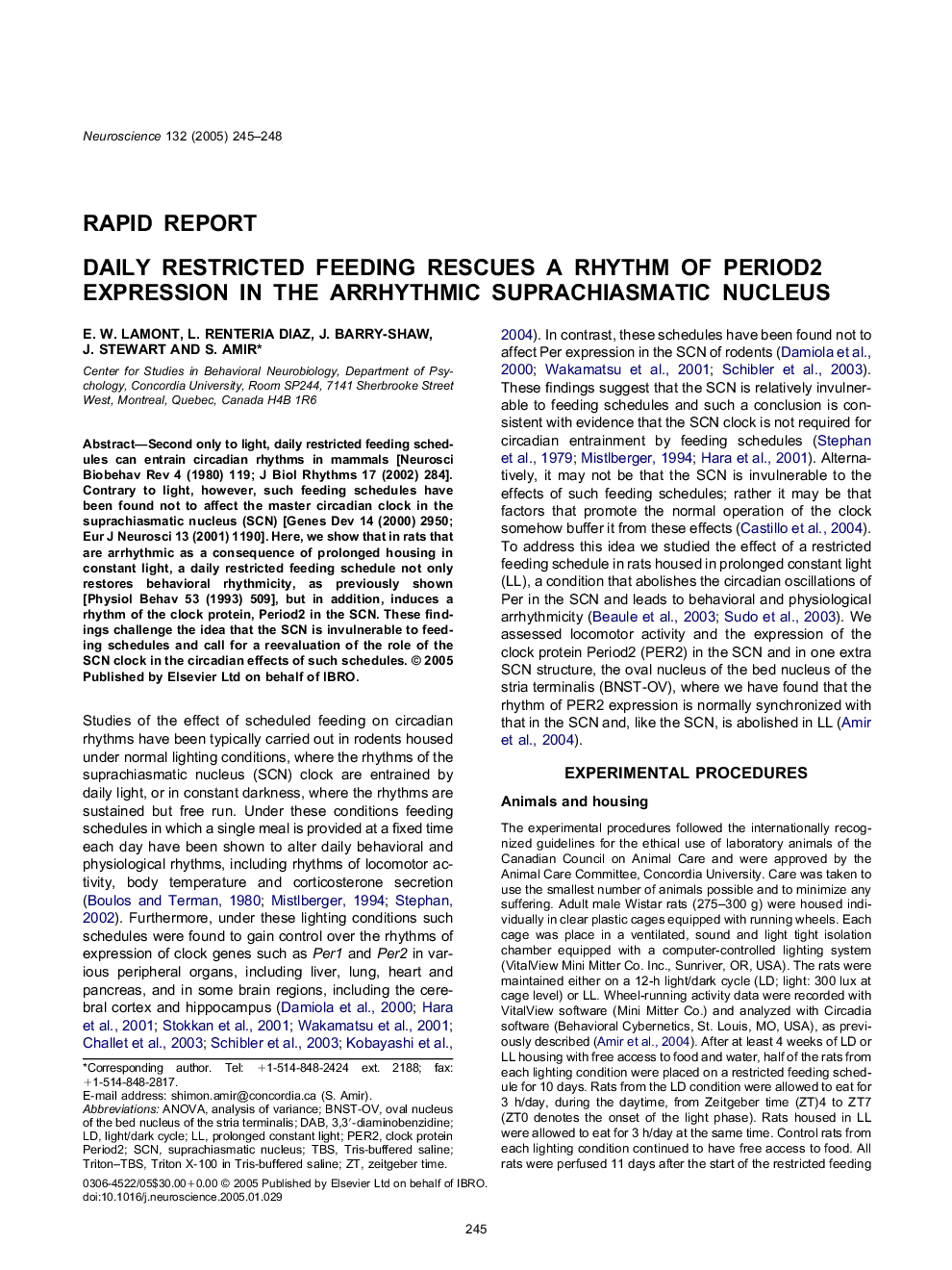| Article ID | Journal | Published Year | Pages | File Type |
|---|---|---|---|---|
| 9425635 | Neuroscience | 2005 | 4 Pages |
Abstract
Second only to light, daily restricted feeding schedules can entrain circadian rhythms in mammals [Neurosci Biobehav Rev 4 (1980) 119; J Biol Rhythms 17 (2002) 284]. Contrary to light, however, such feeding schedules have been found not to affect the master circadian clock in the suprachiasmatic nucleus (SCN) [Genes Dev 14 (2000) 2950; Eur J Neurosci 13 (2001) 1190]. Here, we show that in rats that are arrhythmic as a consequence of prolonged housing in constant light, a daily restricted feeding schedule not only restores behavioral rhythmicity, as previously shown [Physiol Behav 53 (1993) 509], but in addition, induces a rhythm of the clock protein, Period2 in the SCN. These findings challenge the idea that the SCN is invulnerable to feeding schedules and call for a reevaluation of the role of the SCN clock in the circadian effects of such schedules.
Keywords
Related Topics
Life Sciences
Neuroscience
Neuroscience (General)
Authors
E.W. Lamont, L. Renteria Diaz, J. Barry-Shaw, J. Stewart, S. Amir,
